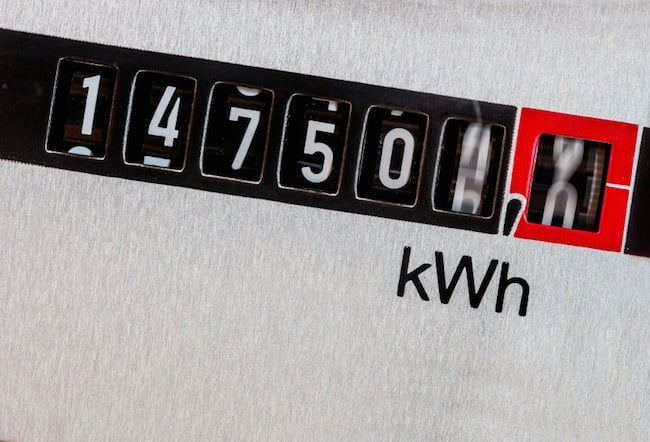What to Expect With Enclosure Air Conditioner Energy Usage

The right air conditioner for your enclosure can have a tremendous impact on the performance and efficiency of your electrical equipment. Choosing the proper cooling capacity for your air conditioner can also save energy and utility costs for your business. There are several factors that can dictate the energy consumed by your enclosure air conditioner.
Heat load and sizing your air conditioner
The total heat load in your enclosure is the amount of heat produced by your electrical equipment and the heat transfer from the environment. In order to specify the right size for your enclosure air conditioner, the heat load calculations are crucial. The implications of a smaller or larger air conditioner are both increased energy and utility costs. For a standard air conditioner, the energy used by the system can be understood as energy used by the compressor whose duty cycle is around 50% in normal applications. A smaller air conditioner requires the compressor to function for more time while a larger air conditioner consumes more energy even if it is in operation only for a shorter time.
Temperature differential
The difference between the desired internal temperature in your enclosure and ambient air temperature has a direct influence on the energy usage of the air conditioner. Moreover, solar heat gain is the heat added to an outdoor enclosure exposed to the sun, and can dramatically change the heat load that the air conditioner has to dissipate. For instance, a 10 kW variable frequency drive dissipates over 300 W while a temperature differential of 30 °F is equivalent to a heat source of over 200 W. If your air conditioner is used in outdoor applications, you can expect the energy usage of the unit to be significantly higher than an indoor unit of the same capacity.
Cooling efficiency factor
Enclosure air conditioners are available in different grades depending on their efficiency of cooling. The cooling efficiency factor is defined as the ratio of useful cooling capacity to the power consumed by the air conditioner to produce the cooling effect. Purchasing an enclosure cooling system that has a higher cooling efficiency factor could save on energy costs.
Environmental conditions and location
The level of humidity and particulate matter in the environment can adversely impact the performance of the air conditioner. The function of the cooling system is to provide the enclosure with dust-free, dry and cool air. For this reason, the enclosure air conditioner is designed to operate with a sealed enclosure so that the inside air is constantly recirculated through the air conditioner. However, if your electrical enclosure is located in an environment that has a high level of particulates in the air, the performance of the air conditioner decreases over time as the condenser inlet filter gets increasingly clogged. Thus, regular maintenance is critical for optimum performance and low energy cost.
Adequate ventilation around the condenser inlet and exhaust can also prove to be a major factor in the performance of the air conditioner. Locating the enclosure and the air conditioner at least three inches away from other surfaces will avoid performance degradation and increased energy costs.
Age and maintenance
The advertised energy costs for any enclosure air conditioner system is usually for a new air conditioner. All the individual components in a new system operate at the highest efficiency. Over time, the performance of the components deteriorates and an older system has a lower cooling efficiency ratio than a newer system. Regular maintenance routines boost the performance and lifespan of the system. Clean filters, dirt-free condenser and evaporator coils are the key to lowering the energy consumption costs of an air conditioner. If you have an older air conditioning system, you can expect it to consume more energy than a newer system of comparable cooling capacity.
Important Design Features
Air conditioner design features such as thermal expansion valves and efficient condensate management systems can improve the efficiency of your air conditioner while ensuring safe and reliable operation of your electrical equipment. It is not always about the initial costs, but rather about the efficiency of the system in the longer run and the money you can save with innovative solutions.
Thermal Edge can help you with identifying why your energy costs are higher and how you can lower them. Contact us today for a free consultation.
